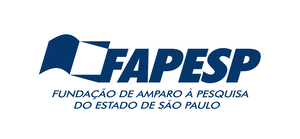Use este identificador para citar ou acessar este item:
https://repositorio.ufscar.br/handle/ufscar/15581| DOI: | https://doi.org/10.1016/j.rmed.2021.106469 |
| Título: | Endothelial function provides early prognostic information in patients with COVID-19: a cohort study |
| Assunto: | COVID-19;Endothelium;Flow-mediated dilation (FMD);Hospitalization |
| Descrição: | Background: The prothrombotic phenotype and diffuse intravascular coagulation observed in COVID-19 reflect endothelial dysfunction, which is linked to blood flow delivery deficiencies and cardiovascular risk. Assessments of detect vascular deficiencies among newly diagnosed and hospitalized patients due to COVID-19 have yet to be determined. Objective: To assess endothelial function characteristics in relation to length of hospitalization and mortality in patients diagnosed with COVID-19 and compare to patients without COVID-19. Methods: A prospective observational study involving 180 patients with confirmed COVID-19 (COVID-19 group) or suspected and ruled out COVID-19 (Non-COVID-19 group). Clinical evaluation and flow mediated vasodilation (FMD) were performed between the first 24-48 h of hospitalization. Patients were followed until death or discharge. Results: We evaluated 98 patients (COVID-19 group) and 82 (Non-COVID-19 group), COVID-19 group remained hospitalized longer and more deaths occurred compared to the Non-COVID-19 group (p = 0.01; and p < 0.01). Patients in COVID-19 group also had a significantly greater reduction in both FMDmm and FMD% (p < 0.01 in both). We found that absolute FMD≤0.26 mm and relative FMD≤3.43% were the ideal cutoff point to predict mortality and longer hospital stay. In Kaplan Meyer's analysis patients had a high probability of death within a period of up to 10 days of hospitalization. Conclusion: Patients hospitalized for COVID-19 present endothelial vascular dysfunction early, remained hospitalized longer and had a higher number of deaths, when compared with patients without COVID-19. |
| Autor(es): | Oliveira, Murilo Rezende Back, Guilherme Dionir Goulart, Cássia da Luz Domingos, Bianca Cristina Arena, Ross Silva, Audrey Borghi |
| URI: | https://repositorio.ufscar.br/handle/ufscar/15581 |
| Outros identificadores: | https://doi.org/10.1016/j.rmed.2021.106469 |
| Fomento: | Conselho Nacional de Desenvolvimento Científico e Tecnológico (CNPq) Coordenação de Aperfeiçoamento de Pessoal de Nível Superior (CAPES) Fundação de Amparo à Pesquisa do Estado de São Paulo (FAPESP) |
| Número do Projeto: | Processo nº 2015/26501–1, Fundação de Amparo à Pesquisa do Estado de São Paulo (FAPESP) Processo nº 2018/03233-0, Fundação de Amparo à Pesquisa do Estado de São Paulo (FAPESP) Código de Financiamento 001 - CAPES Processo nº 141803/2019 -3 - Conselho Nacional de Desenvolvimento Científico e Tecnológico (CNPq) |
| Termo de uso: | Attribution-NonCommercial-NoDerivs 3.0 Brazil |
| Data: | |
| Data de Disponibilização: | 10-Fev-2022 |
| Formato: | |
| Tipo: | Dataset |
| Editora / Evento / Instituição: | Universidade Federal de São Carlos |
| Idioma : | |
| Aparece nas coleções: | Repositório dados - UFSCar |
Este item está licenciada sob uma Licença Creative Commons

